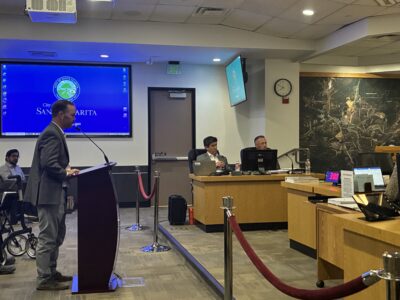By Katabella Roberts
Contributing Writer
President Donald Trump announced on Thursday that he will rename two holidays to celebrate what he said was the significant role the United States played in winning both World War I and World War II.
In a statement on his Truth Social platform, Trump said he will be changing the name of Veterans Day, which is celebrated on Nov. 11, to “Victory Day for World War I.”
Additionally, he said he would rename Victory Day on May 8, which coincides with Victory in Europe Day, as “Victory Day for World War II.”
Trump did not say whether he is considering making May 8 a federal holiday in the United States, like Veterans Day.
“Many of our allies and friends are celebrating May 8th as Victory Day, but we did more than any other country, by far, in producing a victorious result on World War II,” Trump wrote.
“We won both wars, nobody was close to us in terms of strength, bravery, or military brilliance, but we never celebrate anything. That’s because we don’t have leaders anymore that know how to do so! We are going to start celebrating our victories again!”
America’s Veterans Day was originally established as “Armistice Day” by congressional lawmakers in 1938 to honor Americans who fought in World War I, according to the Department of Veterans Affairs.
The day was also meant to be dedicated to the “cause of world peace,” the department says.
After American troops were involved in World War II and the Korean War in the 1940s and early ’50s, veterans’ service organizations urged lawmakers to change the name to Veterans Day.
Lawmakers approved legislation updating the name on June 1, 1954. Veterans Day was made a federal holiday under the Uniform Holiday Act on June 28, 1968.
What Is Victory in Europe Day?
Victory in Europe Day, also known as V-E Day, celebrates the day Germany formally surrendered its military forces to the Allies of World War II — including China, the United Kingdom, the United States, and the Soviet Union — in 1945 following nearly six years of conflict.
The surrender of Germany’s forces did not mark the end of the conflict, however, which continued in the Pacific for a further three months and included the atomic bombings of both Hiroshima and Nagasaki in Japan.
Though some in the United States celebrate Victory Day, it is not a federal holiday and is more widely observed in Europe.
In the UK, Victory Day is commemorated with two minutes of silence across the country. In Russia, Victory Day is observed on May 9 to mark Moscow’s defeat of Nazi Germany during World War II, also known in Russia as the “Great Patriotic War.”
It is one of the most important holidays of the year for Russians, and to mark the occasion this year, Russian President Vladimir Putin has declared a unilateral 72-hour cease-fire with Ukraine on “humanitarian grounds.”
The truce is set to run from May 8 to the end of May 10, though it has been widely dismissed by Ukraine, which has instead called for an immediate and longer-lasting cease-fire.
“If Russia truly wants peace, it must cease fire immediately,” Ukrainian Foreign Minister Andrii Sybiha wrote in a Monday statement on social media platform X. “Why wait for May 8? If we can cease fire now from any date and for 30 days — so that it is real, and not just for a parade.”
Sybiha said that Kyiv is ready for a “lasting, durable and full ceasefire.”
Trump did not provide additional details regarding the upcoming name changes for Veterans Day and Victory Day, including when they will go into effect. So far, no executive order or official proclamation appears to have been issued by the White House.








